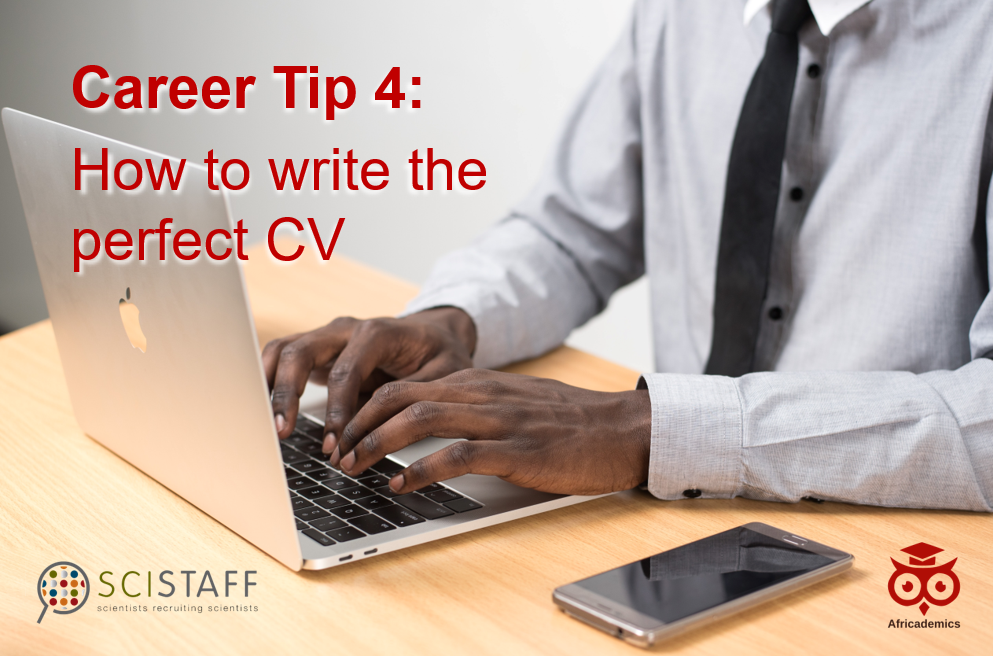
Whether you are a graduate or have loads of experience, writing your CV can still be a stressful process and it always takes longer than you initially thought. When it comes to searching for your dream job, your CV is paramount since it is usually the first point of introduction to a potential employer. If you get it right, odds are you will have an interview in no time, but get it wrong and you may face rejection after rejection.
Every CV is different as you want to show why your set of skills makes you suitable for the position you are applying for at that moment, but all follow a similar structure. Remember, a resume is a short one to two-page summary of your educational background, professional experience and skills, while a CV is a more detailed account of your career. Some potential employers prefer a resume for the initial screening process and a CV of the shortlisted candidates. Our advice is to have both ready: write you CV first and then summarise it in your resume.
Useful tips for writing your CV
1. Limit the number of pages
The average length of a CV is about 3 pages, but one size does not fit all. Therefore, for some professionals with loads of experience, 4 or more pages may be more appropriate. However, refrain from waffling just to fill in blank spaces.
2. Tailor your CV to the job
As recruiters we are experienced and can spot a generic CV in a heartbeat. Rather than trying to fit in all your skills and achievements, focus on selected skills and experience that perfectly match the role you are applying for. This allows you to expand on these attributes and show how you will be a good addition to the team.
However, if you are loading your CV onto a job portal it is better to have the complete CV since recruiters will be using it as a screening tool when looking for suitable candidates. The cover letter is another way in which you can adapt your CV to a specific position, highlight the skills that will make you a suitable candidate and use it to introduce yourself to a potential employer.
3. Follow the correct CV format
Personal details: Include your full name, surname, location (and willingness to relocate), languages you can speak (and proficiency level), driver’s license, and your availability. It is not necessary to include your ID or passport number, although we would advise you to state your nationality and if you have a valid passport and/or visa. Gender and religious affiliation are also not required in a CV.
Contact information: Include a cell phone number and email address that you can be reached at. Remember to update these if they change and check your emails – including your spam folder – regularly!
Education/ Professional Qualifications: Include details of your degree, relevant training, and professional accreditation. Make sure to include the name of the institution or organisation you obtained the qualification from and the date. It is not necessary to state all the modules you took at tertiary level as it takes up too much space, just include your major. If an employer or recruiter is interested in the specific modules, they will request your academic record. Keep electronic copies of your qualifications and academic records ready so you can easily send them if requested.
Work History: List your employment history in chronological order, include dates, job title, duties, and responsibilities. It is also a good idea to include why you left the company since it is something that will be asked by recruiters and potential employers. However, if your reason for leaving needs to be explained and can be misinterpreted it is better to leave it out, nevertheless you should always be honest!
Skills: This can be either computer skills, laboratory skills, instrument you have worked with or any other relevant skills to your education. It is useful to also add your competence level or duration you have employed a skill or worked with a certain instrument. Some people also add soft skills, such as communication, presentation, adaptability etc. to their CV although we feel these are not really something that should be listed on your CV as it can be very generic and loses its value. Instead, soft skills would be something you utilise in your job search, during your interview and in your career.
Achievements and Awards: If you are just starting out in your career it can be useful to mention you were prefect in high school or played soccer for the first team but as you grow in your career these achievements loses their relevance and just clutter your CV. Keep the achievements and awards pertinent to your career path and try to only retain the most recent ones.
To get an idea of what should be included in a CV, follow the link (http://www.scistaff.co.za/dl/cvtemplate.doc) for the CV format used by SciStaff. As mentioned above, some information such as ID number and gender is not included in the CVs we send to potential employers.
4. Keep it neat and tidy
Always proofread your CV and check for spelling and grammatical errors. Also ensure there is plenty of white space included with each section clearly outlined with consistent font used. Again, take your time when writing your CV and continuously edit it as you learn new skills and grow in your career. A good idea is to make it a yearly routine to work on your CV so that it always ready.
Join us next week for more tips and what not to put in your CV!
